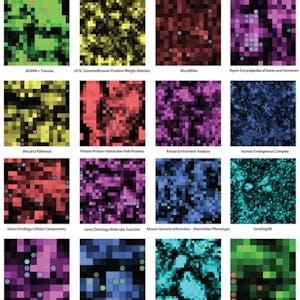Introduction to Computational Statistics for Data Scientists
About this Specialization
The purpose of this series of courses is to teach the basics of Computational Statistics for the purpose of performing inference to aspiring or new Data Scientists. This is not intended to be a comprehensive course that teaches the basics of statistics and probability nor does it cover Frequentist statistical techniques based on the Null Hypothesis Significance Testing (NHST). What it does cover is:\\n\\nThe basics of Bayesian statistics and probability\\n\\nUnderstanding Bayesian inference and how it works\\n\\nThe bare-minimum set of tools and a body of knowledge required to perform Bayesian inference in Python, i.e. the PyData stack of NumPy, Pandas, Scipy, Matplotlib, Seaborn and Plot.ly\\n\\nA scalable Python-based framework for performing Bayesian inference, i.e. PyMC3\\n\\nWith this goal in mind, the content is divided into the following three main sections (courses).\\n\\nIntroduction to Bayesian Statistics - The attendees will start off by learning the the basics of probability, Bayesian modeling and inference in Course 1.\\n\\nIntroduction to Monte Carlo Methods - This will be followed by a series of lectures on how to perform inference approximately when exact calculations are not viable in Course 2.\\n\\nPyMC3 for Bayesian Modeling and Inference - PyMC3 will be introduced along with its application to some real world scenarios.\\n\\nThe lectures will be delivered through Jupyter notebooks and the attendees are expected to interact with the notebooks.Created by: Databricks

Related Online Courses
Course four of the Anthos series prepares students to consider multiple approaches for modernizing applications and services within Anthos environments. Topics include optimizing workloads on... more
This program offers comprehensive content on leadership and transformation, encompassing topics such as strategic decision-making, change management, and organizational innovation. Learners will... more
This course will select six most outstanding issues in contemporary Korean politics and will engage in an in-depth, interactive inquiry of those issue. They include Korean politics in history,... more
The Library of Integrative Network-based Cellular Signatures (LINCS) was an NIH Common Fund program that lasted for 10 years from 2012-2021. The idea behind the LINCS program was to perturb... more
This course is best suited for individuals currently in the healthcare sector, as a provider, payer, or administrator. Individuals pursuing a career change to the healthcare sector may also be... more








